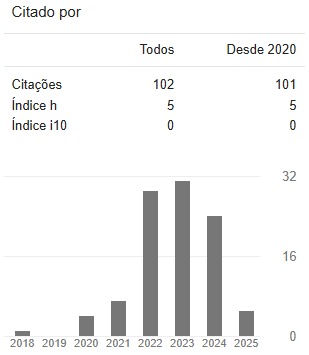Acepções teóricas do estado totalitário e do estado de bem-estar social
DOI:
https://doi.org/10.35642/rm.v7i1.1009Palavras-chave:
Sociedade, Estado, Estado Totalitário, Estado de Bem-Estar SocialResumo
Algumas configurações de organização estatal que se enunciaram no século XX, como o Estado Totalitário ou o Estado de Bem-Estar Social, apresentam uma série de nuances que evitam de simplesmente amalgamá-los em um determinado recorte temporal ou geográfico. O objetivo do presente artigo é evidenciar, através de metodologia de revisão bibliográfica argumentativa, que tanto no modelo de sociedade absorvida pelo Estado (Estado Totalitário), quanto no modelo de Estado provedor de direitos da sociedade (Estado de Bem-Estar Social) são estabelecidas relações simbólicas e imaginárias, que extrapolam as relações fáticas do nexo Estado – sociedade. Desse modo, nossa hipótese é de que as acepções do Estado Totalitário, ou do Estado de Bem-Estar Social, não estão restritas às suas insurgências históricas, mas são arcabouços teóricos que continuam atuais para análise dos nexos imaginários e simbólicos com os quais são idealizadas as relações entre o Estado e a sociedade. Este antagonismo entre a sociedade e o Estado é uma recorrência presente, tanto na abordagem do Estado Totalitário, como também na abordagem do Estado de Bem-Estar Social que apresentamos no presente artigo.
Downloads
Referências
BOBBIO, Norberto. Estado, governo, sociedade; por uma teoria geral da política. 18ª ed. Rio de Janeiro: Paz e Terra, 2012.
CHÂTELET, François. História das Ideias Políticas. 2ª ed. Rio de Janeiro: Jorge Zahar editor,2009.
DURIGUETTO, Maria Lúcia e MONTAÑO, Carlos. Estado, Classe Social e Movimento Social. São Paulo: Cortez, 2010.
FAUSTO, Boris. O pensamento nacionalista autoritário: (1920-1940). Rio de Janeiro: J. Zahar, c2001. 81 p. (Descobrindo o Brasil) ISBN 85-7110-600-2
FAYE, Jean Pierre. Introdução às linguagens totalitárias: teoria e transformação do relato. São Paulo: Perspectiva, 2009. xxv, 156 p.
HAYEK, Friedrich A. von. O caminho da servidão. 2. ed. Porto Alegre: Globo, 1977. xxxiv, 234 p.
GIDDENS, Anthony. Para além da esquerda e da direita: o futuro da politica radical. São Paulo: Ed. UNESP, 1996. 296 p. (Coleção Pensamento Franciscano;3) ISBN 8571391149
MANDEL, Ernest. A crise do capital; os fatos e suas interpretação marxista; São Paulo: Ed. Ensaios, 1990.
MARX, Karl. Teorias sobre a mais-valia: história crítica do pensamento econômico – Livro Quarto de O capital. Volume 2. São Paulo: Difel, 1983.
MARX, Karl. O Capital: crítica da economia política; GORENDER, Jacob (apres.); SINGER, Paul (Coord. e Rev.); BARBOSA, Regis; KOTHE, Flávio R. (Trad.). 2. ed. – São Paulo: Nova Cultural, 1985. v. I. seção II, cap. 3.
MYRDAL, Gunnar. Aspectos políticos da teoria econômica. 1. ed. Rio de Janeiro: Zahar, 1962. 272 p.
ZIZEK, Slavo. O Mais Sublime dos Histéricos. Hegel com Lacan. Rio de Janeiro: Jorge Zahar Editor, 1991. 230 p.
Downloads
Publicado
Edição
Seção
Licença
Copyright (c) 2023 Revista Macambira

Este trabalho está licenciado sob uma licença Creative Commons Attribution 4.0 International License.












